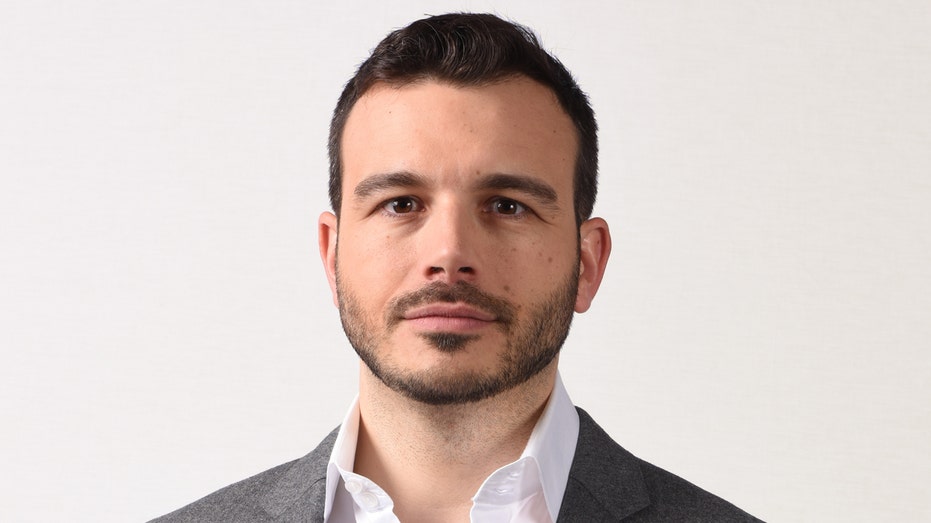With Alliance of American Football, Charlie Ebersol combines sports league with tech startup
With the Alliance of American Football set to kick off its inaugural spring season on Saturday, co-founder Charlie Ebersol is betting that an innovative tech platform and streamlined on-field product will allow his upstart league to succeed where many others, including his father's, have failed.
Roughly 20 years ago, legendary NBC Sports executive Dick Ebersol co-founded the original XFL alongside WWE Chairman Vince McMahon to challenge the NFL’s dominance of the sport. Featuring a controversial mix of sports entertainment and a mediocre on-field product, the league folded after just one season amid a massive budget shortfall and dismal television ratings.
Unlike the XFL, the Donald Trump-backed United States Football League, as well as other failed businesses of years past, Charlie Ebersol said the AAF won’t rely solely on revenue from ticket sales, sponsorships or television deals to stay afloat and will complement, rather than challenge, the NFL. Instead, the AAF will rely on a faster version of the football that fans already know, married to a proprietary, interactive tech platform that Ebersol envisions as an eventual multi-billion-dollar business.
“Quality football is important, but football is not the engine,” Ebersol told FOX Business. “It’s not the economic engine of this business year one. The long-term goal is to build a technology company that has a multi-billion-dollar valuation, and so we’re going to invest heavily in putting good football on the field that mimics in the NFL in terms of the quality and the type of play, so that our technology can travel to not only the NFL, but other sports and other industries.”
Ebersol said the AAF’s tech platform formed the core of a pitch that attracted several big-name investors. The league’s financial backers include media executive Peter Chernin of The Chernin Group, Brian Singerman of the venture capital Founders Fund, the MGM Resorts casino empire and NBA legend Shaquille O’Neal.

AAF Co-Founder Charlie Ebersol (AAF)
The league also has a pair of major television partners in CBS Sports and the NFL Network, each of which will air AAF games. The AAF’s season begins this weekend of Feb. 9 and concludes with a championship game in late April.
On-field innovations
To build an on-field product capable of keeping fans engaged, Ebersol approached several NFL veterans, including renowned front office executive Bill Polian, who co-founded the league, as well as former All-Pro stars Jared Allen and Troy Polamalu.
The AAF’s games will feature few changes from the NFL’s rulebook. Instead, the league focused on speeding up the pace of play by setting a 35-second play clock, cutting down on commercials and eliminating the kickoff and extra point. Each game broadcast will conclude after roughly two hours and 30 minutes.
“When people have attempted to do this in the past, they’ve tried to go away from the NFL, either to be competitive with them or to offer some sort of alternative version of football, be it in an arena or whatever,” Ebersol said. “We went in the opposite direction. We really believe that the thing makes us different from other leagues is how similar we are to the NFL.”
League executives also took a methodical approach to roster construction. Each of the AAF’s eight teams has a 52-man roster, with each player signing a non-guarantee, three-year, $250,000 contract. Deals for high-profile players, such as former University of Alabama star running back Trent Richardson, sometimes feature an “out” clause that allows players to leave their teams if the NFL comes calling.
All of the AAF’s players are guaranteed full medical coverage for themselves and their families, as well as opportunities to pursue post-graduate degrees, jobs training and financial literacy courses. Players also have the opportunity to earn “coins,” tied to team performance, community outreach and fan engagement, that function as cash bonuses.
The league’s eight initial teams are all centrally owned and are located in Phoenix, Atlanta, Birmingham, Ala., Memphis, Tenn., Orlando, Fla., Salt Lake City, San Antonio and San Diego.
The technology play
While the AAF’s games will serve as the initial draw for fans, Ebersol is confident that his league’s true value lies in its tech platform. Fans will be able to log into an app that will allow them to livestream each matchup and interact with the broadcast. For example, a user can guess whether an offense will run or pass on a given play, or if a defense will get an interception.
As fans get acclimated to the app, Ebersol said the AAF will roll out new features that will reward users for correct guesses with points that can be exchanged for cash prizes and other perks. The app will be able to transmit data about fan engagement and on-field action in real-time -- data that could become invaluable to gambling operators and other potential clients.
“Sports is the great aggregator," Ebersol said. "Nothing else gets 19 million people to tune in at the exact same time to something week in and week out the way football does, and yet they haven’t really invested significantly in the data around the sport. What we looked at was, with gambling becoming legal across the country and also having been legal in Europe for a long time, it’s interesting that nobody built a first-party solution.”
While the AAF’s app won’t offer sports betting, Ebersol said the underlying technology used to allow fans to guess the outcome of plays could allow MGM and other gambling operators to offer in-game betting in real time, or provide sports leagues with a new way to engage with fans and gather key data about their product.
Much as Amazon’s cloud-computing business has grown exponentially alongside its e-commerce platform, Ebersol asserts that the technology will become more valuable than the AAF’s games.
Obstacles, both old and new
But like all new professional sports leagues, the AAF faces a challenging path toward profitability. The league has grown from a handful of employees three years ago to roughly 1,100 at present, and building out a football league alongside an ambitious tech platform does not come cheap.
Ebersol estimated that the league’s expenses through its first five or six years of existence will run close to $750 million “at minimum.” He acknowledged that the usual growing pains that past attempts at pro football leagues have experienced in their early stages, such as empty stadium seats and weak television ratings, are an inevitability. The tech platform that serves as the linchpin of Ebersol’s business model has yet to be tested in a live setting.
Competition could also pose a problem. WWE’s McMahon is currently bankrolling a resurgent version of the XFL that will begin play in 2020. XFL Commissioner Oliver Luck has promised an innovative league that will prioritize fast-paced football, an affordable live experience and a family-friendly environment.
Ebersol sidestepped questions about a potential rivalry with the new XFL, saying he is wholly focused on the AAF’s own attempt to capture fan attention. While the original XFL folded after just one season of play, Ebersol said his league has enough funding for at least a multi-year run.
CLICK HERE TO GET THE FOX BUSINESS APP
“We’ve talked to our investors about this the way you would talk to investors about a tech investment,” Ebersol said. “This is about raising multiple rounds of investment. We’re not looking for the traditional model, where you’re just looking for people that are excited about football. You’re looking for people that are looking for a multiple on their investments around what the business can do.”




















